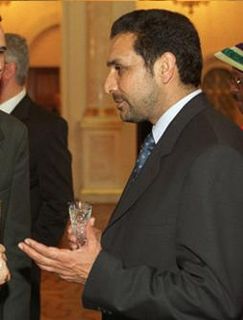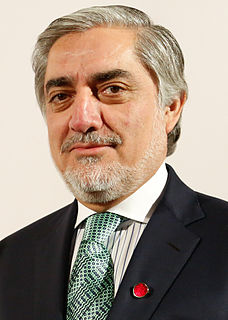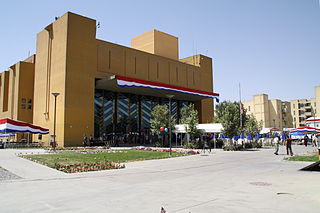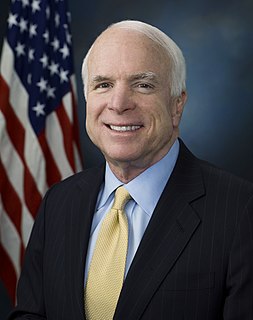Mohammad Qasim Fahim, also known as "Marshal Fahim"; 1957 – 9 March 2014) was a politician in Afghanistan who served as Vice President from June 2002 until December 2004 and from November 2009 until his death. Between September 2001 and December 2004, he also served as Defense Minister under the Afghan Transitional Administration.

Ahmed Wali Karzai was a politician in Afghanistan who served as Chairman of the Kandahar Provincial Council from 2005 until his death. He was the younger paternal half-brother of former Afghan President Hamid Karzai and an elder of the Popalzai tribe. Wali Karzai formerly lived in the United States where he managed a restaurant owned by his family. He returned to Afghanistan following the removal of the Taliban government in late 2001. He has been accused of political corruption and was allegedly on the CIA payroll. He was assassinated by one of his close bodyguards, Sardar Mohammad, on 12 July 2011.

Hamid Karzai International Airport is located 5 kilometers (3.1 mi) from the city center of Kabul in Afghanistan. It serves as one of the nation's main international airports and as one of the largest military bases, capable of housing over one hundred aircraft. It was previously named Kabul International Airport and locally as Khwaja Rawash Airport, though it continues to be officially known by some airlines by the latter name. The airport was given its new name in 2014 in honor of former President Hamid Karzai. The decision was made by the National Assembly of Afghanistan and the Cabinet of President Ashraf Ghani.

Younus Qanooni is an Afghan politician who was Vice President of Afghanistan. An ethnic Tajik, Qanooni is the leader of the Afghanistan e Naween political party and former Speaker of the House of the People.
Peter Alan Stollery is a former Canadian politician and businessman.

The Afghan Northern Alliance, officially known as the United Islamic Front for the Salvation of Afghanistan, was a united military front that came to formation in late 1996 after the Islamic Emirate of Afghanistan (Taliban) took over Kabul. The United Front was assembled by key leaders of the Islamic State of Afghanistan, particularly president Burhanuddin Rabbani and former Defense Minister Ahmad Shah Massoud. Initially it included mostly Tajiks but by 2000, leaders of other ethnic groups had joined the Northern Alliance. This included Abdul Rashid Dostum, Mohammad Mohaqiq, Abdul Qadir, Asif Mohseni and others.

Ahmad Zia Massoud was the Vice President of Afghanistan in the first elected administration of President Hamid Karzai, from December 2004 to November 2009. He is a younger brother of the late Ahmad Shah Massoud, the resistance leader against the Soviet invasion of Afghanistan and against the Taliban. In late 2011, Ahmad Zia Massoud joined hands with major leaders in the National Front of Afghanistan, which strongly opposes a return of the Taliban to power. The National Front is generally regarded as a reformation of the United Front which with U.S. air support removed the Taliban from power in late 2001.
During the war in Afghanistan (2001–present), over 31,000 civilian deaths due to war-related violence have been documented; 29,900 civilians have been wounded. Over 111,000 Afghans, including civilians, soldiers and militants, are estimated to have been killed in the conflict. The Cost of War project estimated that the number who have died through indirect causes related to the war may be as high as 360,000 additional people based on a ratio of indirect to direct deaths in contemporary conflicts. These numbers do not include those who have died in Pakistan.

Afghanistan–United States relations can be traced to 1921 but the first contact between the two occurred further back in the 1830s when the first recorded person from the United States was visiting Afghanistan. In the last decade, Afghan-American relations have become stronger than ever before. Afghanistan and the United States have a very strong and friendly strategic partnership. In 2012, relations became even closer when the President of the United States, Barack Obama declared Afghanistan a Major non-NATO ally. According to a 2012 BBC poll, the U.S. was the most favored country in Afghanistan.
The following lists events that happened during 2002 in Afghanistan.
The following lists events that happened during 2004 in Afghanistan.

Abdullah Abdullah is an Afghan politician, serving as Chief Executive of the Islamic Republic of Afghanistan since September 2014. From October 2001 to April 2005, he served as Minister of Foreign Affairs. Prior to that he was a senior member of the Northern Alliance working as an adviser to Ahmad Shah Massoud. He also worked as a medical doctor during the late 1990s.
Jawed Ludin is the Deputy Foreign Minister on Political Affairs. He was appointed on 2011, by President Hamid Karzai. He was Ambassador of Afghanistan in Canada from 2009 to 2012, and had been Spokesperson and later Chief of Staff to President Karzai.
Events from the year 2009 in Afghanistan
2003 in Afghanistan. A list of notable incidents in Afghanistan during 2003

Events from the year 2012 in Afghanistan.

The April 2012 Afghanistan attacks took place on Sunday, 15 April 2012, at around 13:00 local time when heavily armed Taliban insurgents and suicide bombers launched multiple coordinated attacks throughout Afghanistan. Insurgents launched the 2012 spring offensive on multiple locations, including government buildings, military bases, and embassies. Attacks occurred in four Afghan provinces, including Kabul and Paktia. Different reports attribute responsibility for the attacks to either Taliban or the Haqqani network although the Taliban have claimed responsibility.

The U.S.–Afghanistan Strategic Partnership Agreement, officially titled Enduring Strategic Partnership Agreement between the Islamic Republic of Afghanistan and the United States of America, is an agreement between Afghanistan and the United States of America that provides the long-term framework for the relationship between Afghanistan and the United States of America after the drawdown of U.S. forces in the Afghanistan war. The Strategic Partnership Agreement went into effect on July 4, 2012, as stated by US Secretary of State Hillary Clinton, who said on July 8, 2012, at the Tokyo Conference on Afghanistan: "Like a number of countries represented here, the United States and Afghanistan signed a Strategic Partnership Agreement that went into effect four days ago."
The following lists events that happened in 2013 in Afghanistan.

















